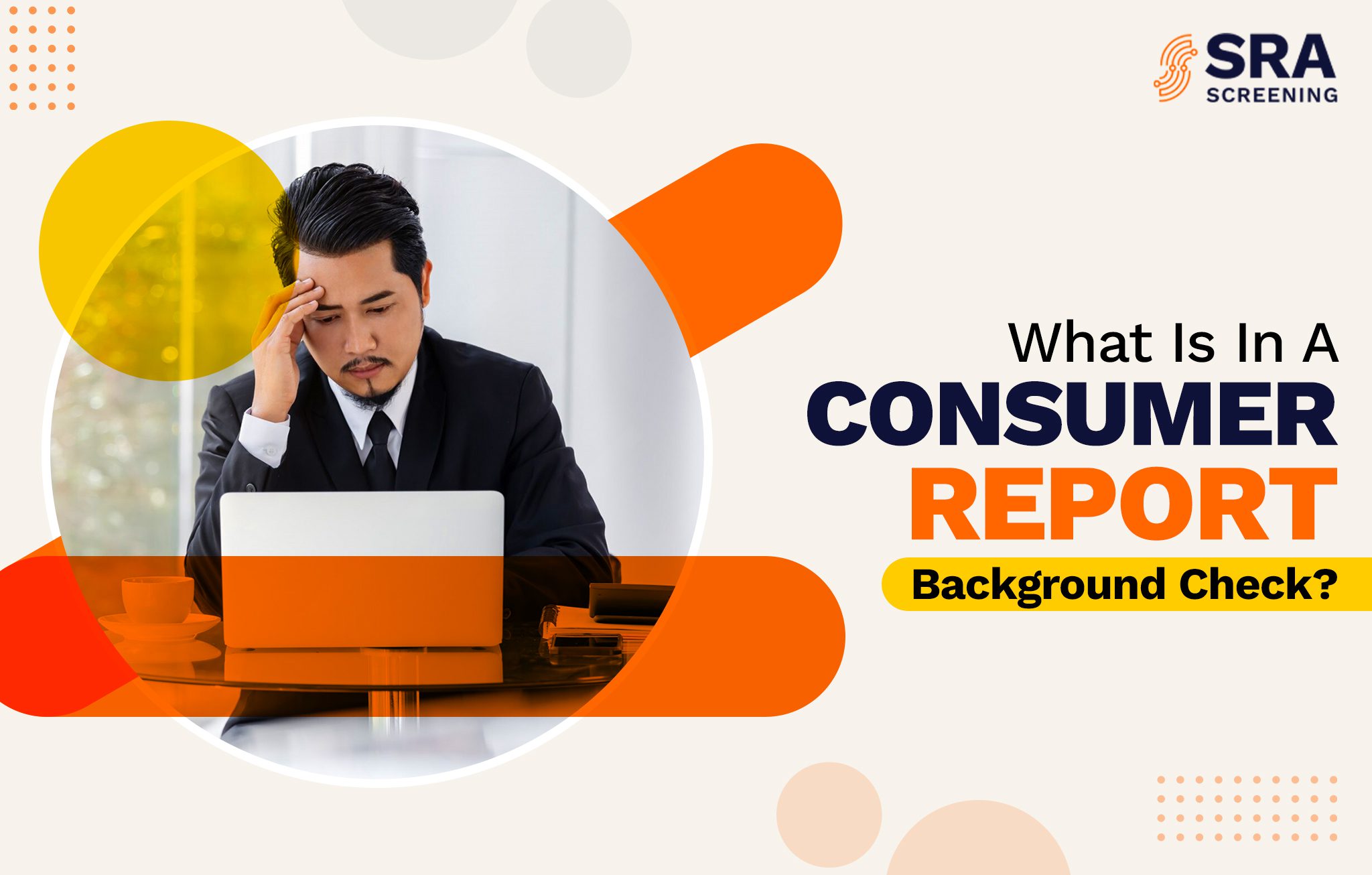
Understanding a Consumer Report
A consumer report is a collection of background information that an employer obtains from a third-party Consumer Reporting Agency (CRA) to evaluate a candidate’s suitability for employment.
For employment purposes, a consumer report may include:
While often used interchangeably, there’s an important difference:
Below is a detailed breakdown of what’s typically included:
This section may involve multiple levels:
This process identifies individuals listed on the national or state sex offender registries.
Employment Verification typically includes:
Educational History Verification
Like employment verification, this confirms a candidate’s academic background by having the CRA contact institutions to verify:
For regulated professionals (e.g., healthcare, legal, finance), consumer reports will confirm that licenses are active, valid, and free of any disciplinary actions or suspensions.
In certain employment situations, particularly roles involving financial oversight, access to company funds, or handling sensitive financial information, consumer reports can include a review of financial records. These records can cover the following information:
Some states restrict the use of credit reports in hiring unless directly relevant to the role. In those cases, employers must justify the need, obtain applicant consent, and follow the FCRA procedures if the report affects employment decisions.
When a role involves operating a company vehicle or driving is a core responsibility, a Motor Vehicle Record (MVR) check may be part of a consumer report. An MVR report typically includes:
In addition to standard components, consumer reports may include specialized checks tailored to the nature of the job or industry, such as:
Employers using consumer reports must follow the Fair Credit Reporting Act (FCRA) and, in some cases, additional state and local laws. These requirements protect applicants’ privacy, ensure fairness, and promote transparency.
Key Employer Responsibilities Include:
Before conducting a consumer report, employers are legally required to inform applicants, in a standalone document, that a consumer report may be used in hiring decisions. The disclosure cannot include extra language and should be easily understood.
Before requesting a consumer report, employers must get signed, written consent from the applicant or employee. This consent must be voluntary, clearly documented, and signed by the individual. If additional checks are done during employment, new consent may be required.
Before obtaining a consumer report, the employer must provide a formal certification to the Consumer Reporting Agency (CRA) advising that the report will only be used for employment purposes and that all legal requirements have been met.
If a consumer report reveals information that could negatively impact a hiring decision, the employer is legally required to follow the FCRA’s adverse action process.
In addition to the FCRA, employers must also comply with applicable state and local laws, which may impose additional requirements. Many jurisdictions have “ban-the-box” laws, which limit when employers can ask about criminal history, often delaying it until after an interview or conditional offer. Some states also require extra disclosures, longer waiting periods before adverse action, or more detailed notices. Employers must stay aware of these varying rules to remain compliant.
Because consumer reports contain sensitive personal information, employers have a legal and ethical obligation to protect the privacy of the individuals being screened. Consumer reports must be securely stored, shared only with decision-makers, and properly disposed of when no longer needed.
At SRA Screening, we believe every consumer report represents more than compliance — it’s an opportunity to build safer, more trustworthy workplaces where people can succeed. Each report empowers employers to make informed, confident decisions while ensuring every applicant is treated with fairness, transparency, and respect.
Understanding the difference between a general background check and a regulated consumer report is essential, especially when it comes to meeting Fair Credit Reporting Act (FCRA) requirements. When employers partner with a trusted Consumer Reporting Agency like SRA, they gain the assurance that every screening is handled with accuracy, care, and full legal compliance. Because when compliance meets care, screening becomes more than a requirement—it becomes a reflection of integrity, trust, and the commitment SRA brings to every partnership.
DISCLAIMER: This blog post is for informational purposes only and is not legal advice. Please consult a qualified professional before making any decisions.
The FCRA is enforced federally, but states may also implement it and have their own consumer reporting laws. You may have additional rights under state law. For more information, contact your state or local consumer protection agency or your state attorney general.
When a workplace accident occurs, employers must quickly address a range of
When a workplace accident occurs, employers must quickly address a range of
Employers who hire or manage CDL drivers are responsible for ensuring compliance
Get updates, exclusive offers, and insights straight to your inbox.
Key Resource Hub
Your Questions Answered
Editorial team insights